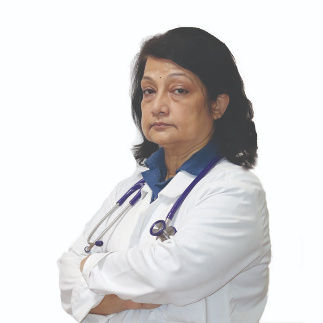Guide to Faqs On Heart Diseases
Get a complete overview of heart diseases, including causes, symptoms, prevention, and treatment options. Learn how to maintain heart health with lifestyle changes and medical care.


Heart disease remains the world's leading cause of death, yet it is often misunderstood. The term itself can feel overwhelming, sparking a flood of questions about risk, symptoms, and prevention. You're not alone in seeking clear, reliable answers. Whether you're proactively managing your health or concerned about a specific symptom, understanding the fundamentals of cardiovascular wellness is the first step toward empowerment. We will explore everything from the various types of heart conditions and their warning signs to modern diagnostic methods, effective treatment options, and, most importantly, actionable strategies for prevention. Let's demystify heart health together.
What Exactly is Heart Disease?
Heart disease is not a single disorder but an umbrella term for a range of conditions affecting the heart's structure and function. It refers to problems with the heart and blood vessels, often related to a process called atherosclerosis, where plaque builds up in the artery walls. This buildup narrows the arteries, making it harder for blood to flow and creating a risk for heart attack or stroke.
Coronary Artery Disease (CAD)
When people talk about heart disease, they are most often referring to Coronary Artery Disease (CAD). CAD occurs when the major blood vessels (coronary arteries) that supply your heart with blood, oxygen, and nutrients become damaged or diseased. Cholesterol-containing deposits (plaque) and inflammation are usually to blame. This is the primary cause of heart attacks. A heart attack occurs when a plaque ruptures and a blood clot forms, completely blocking blood flow to a part of the heart muscle.
Other Types of Heart Conditions
Beyond CAD, the heart disease umbrella covers several other conditions:
- Heart Failure: This doesn't mean the heart has stopped working. It means the heart muscle isn't pumping blood as well as it should, leading to shortness of breath, fatigue, and swelling.
- Arrhythmia: This is an abnormal heart rhythm. Your heart may beat too quickly (tachycardia), too slowly (bradycardia), or irregularly.
- Valvular Heart Disease: Your heart has four valves that keep blood flowing in the correct direction. Damage from conditions like infection or ageing can narrow or leak a valve, disrupting blood flow.
Key Factors You Can and Can't Control
Understanding your risk profile is a powerful tool in preventing heart disease. Some factors are fixed, but many are within your power to change.
Non-Modifiable Risk Factors (Age, Gender, Family History)
These are risks you cannot change but should be aware of:
- Age: Simply getting older increases your risk of damaged and narrowed arteries.
- Gender: Men are generally at greater risk. However, a woman's risk increases after menopause.
- Family History: A family history of heart disease increases your risk, especially if a parent developed it at an early age (before 55 for a male relative or 65 for a female relative).
- Race: Certain races, including African Americans, have a higher predisposition to high blood pressure and thus heart disease.
Consult Top Specialists
Modifiable Risk Factors
This is where your lifestyle choices have a direct impact. Addressing these is the cornerstone of prevention.
- Hypertension: High blood pressure forces your heart to work harder to pump blood. This extra effort can thicken and stiffen the heart muscle, leading to damage over time. Because it often has no symptoms, regular monitoring is crucial. If you struggle to keep your readings in a healthy range, consult a doctor online with Apollo24|7 for a personalised management plan.
- High Cholesterol: High levels of LDL ("bad") cholesterol can lead to plaque buildup in your arteries. Conversely, HDL ("good") cholesterol helps remove LDL cholesterol from your arteries. A simple blood test can reveal your levels. Apollo24|7 offers convenient home collection for tests like lipid profile, so you can check your cholesterol without a clinic visit.
Other critical modifiable risks include smoking, diabetes, obesity, physical inactivity, and high stress levels.
Symptoms of Heart Disease
Heart disease symptoms can vary greatly depending on the specific condition. Some people discover they have a problem only during a medical emergency.
Common Symptoms in Men and Women
The most classic symptom of a heart attack is chest pain, pressure, or tightness (angina). However, it can present differently.
- Chest pain, tightness, or discomfort
- Pain, numbness, or coldness in legs or arms
- Shortness of breath
- Pain in the neck, jaw, throat, or back
Subtle and Often-Ignored Symptoms
Women are more likely than men to experience subtle heart attack symptoms that aren't related to chest pain. These can be easily mistaken for less serious conditions like the flu or acid reflux. Symptoms more common in women include:
- Nausea or vomiting
- Unusual fatigue
- Lightheadedness or dizziness
- Cold sweat
- Indigestion or heartburn
Any new, unexplained, or concerning symptom warrants medical attention. Don't wait.
Conclusion
Navigating the world of heart health can seem daunting, but knowledge is your greatest asset. Understanding heart diseases—from its various forms and risk factors to its symptoms and prevention strategies—empowers you to take proactive control of your well-being. Remember, heart disease is often preventable. By making informed choices about your lifestyle, staying vigilant about potential warning signs, and maintaining a partnership with your healthcare provider for regular monitoring, you can significantly reduce your risk and pave the way for a longer, healthier life. Your heart is the engine of your body; fuel it wisely, listen to it carefully, and don't hesitate to seek expert guidance to keep it running smoothly for years to come.
Consult Top Specialists
Consult Top Specialists

Dr. Sumanjita Bora
Cardiologist
9 Years • MBBS, PGDCC
Bengaluru
Apollo Clinic, Sarjapur Road, Bengaluru

Dr. Anand Ravi
General Physician
2 Years • MBBS
Bengaluru
PRESTIGE SHANTHINIKETAN - SOCIETY CLINIC, Bengaluru

Dr. Zulkarnain
General Physician
2 Years • MBBS, PGDM, FFM
Bengaluru
PRESTIGE SHANTHINIKETAN - SOCIETY CLINIC, Bengaluru

Dr. Tripti Deb
Cardiologist
40 Years • MBBS, MD, DM, FACC, FESC
Hyderabad
Apollo Hospitals Jubilee Hills, Hyderabad

Dr. Praveen Subbanna
Cardiologist
10 Years • MBBS, M.D. (JIPMER. PONDICHERRY), DM (cardiology, SMS MEDICAL COLLEGE, JAIPUR)
Bengaluru
Apollo Hospitals Bannerghatta Road, Bengaluru
Consult Top Specialists

Dr. Sumanjita Bora
Cardiologist
9 Years • MBBS, PGDCC
Bengaluru
Apollo Clinic, Sarjapur Road, Bengaluru

Dr. Anand Ravi
General Physician
2 Years • MBBS
Bengaluru
PRESTIGE SHANTHINIKETAN - SOCIETY CLINIC, Bengaluru

Dr. Zulkarnain
General Physician
2 Years • MBBS, PGDM, FFM
Bengaluru
PRESTIGE SHANTHINIKETAN - SOCIETY CLINIC, Bengaluru

Dr. Tripti Deb
Cardiologist
40 Years • MBBS, MD, DM, FACC, FESC
Hyderabad
Apollo Hospitals Jubilee Hills, Hyderabad

Dr. Praveen Subbanna
Cardiologist
10 Years • MBBS, M.D. (JIPMER. PONDICHERRY), DM (cardiology, SMS MEDICAL COLLEGE, JAIPUR)
Bengaluru
Apollo Hospitals Bannerghatta Road, Bengaluru
More articles from Heart disease
Frequently Asked Questions
1. What is the difference between a heart attack and cardiac arrest?
A heart attack is a circulation problem where blood flow to the heart is blocked. Cardiac arrest is an electrical problem where the heart suddenly stops beating unexpectedly. A heart attack can cause cardiac arrest.
2. Can heart disease be reversed?
While you can't reverse damage like scar tissue, you can absolutely halt the progression of heart disease and even reverse some of the plaque buildup through aggressive lifestyle changes (diet, exercise, quitting smoking) and medication under a doctor's supervision.
3. What are the early signs of heart disease?
Early signs of heart disease can be subtle: shortness of breath after mild exertion, unusual fatigue, swelling in the feet/ankles, or frequent heartburn. Regular check-ups are key to catching issues before symptoms become severe.
4. How often should I get my heart checked?
If you're over 40 or have risk factors, an annual check-up that includes blood pressure and cholesterol screening is advised. Those with known issues may need more frequent monitoring. Consult a doctor on Apollo24|7 to determine the right screening schedule for you.
5. What is the best diet for heart health?
Diets like the Mediterranean or DASH (Dietary Approaches to Stop Hypertension) are excellent. They emphasize fruits, vegetables, whole grains, lean proteins, and healthy fats while limiting sodium, sugar, and saturated fats.


